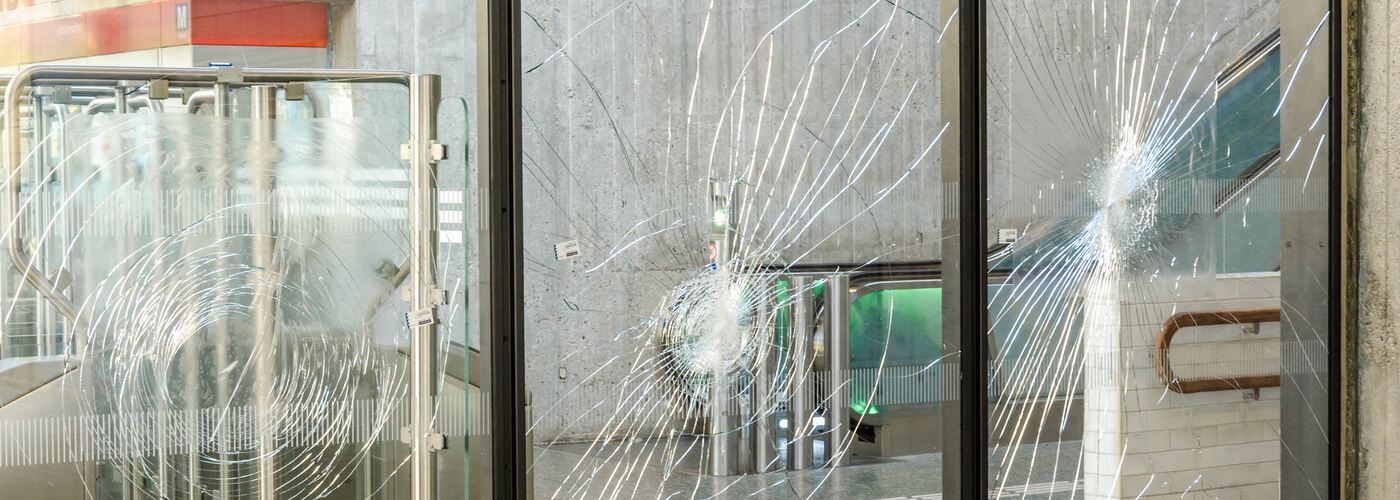
There is currently chaos on campuses across the United States as students protest the current flavor of the month. Protests are nothing new to college campuses; they've been happening since the 1960's. However, when protests turn violent, when students attack other students, when buildings are invaded and taken over when classes are canceled; these are no longer protests. It becomes a dangerous situation. How can students, faculty, and staff remain safe during the chaos on campus? That's a complex subject with multiple answers that we need to discuss.
First, let me say that this subject is near and dear to me. My firstborn will be attending her first year of college next year. As a firearm and safety instructor, these are the topics that keep the hamster wheel in my head turning. As a father of a college-bound student, you can imagine that the topic has taken top priority in my thoughts. I'll share ideas and methods for remaining safe on campus so that you or your loved one can remain safe as well.
The Hidden Danger on College Grounds
Now, we must address that college campuses aren't "Safe spaces". Even if we were to subtract the riots and takeovers from the equation, college campuses are secretly very violent places. According to RAINN, 13% of all students experience rape or sexual assault. And, among undergraduate students, 26.4% of females and 6.8% of males experience rape or sexual assault. These numbers are insane! So, we mustn't let our guard down or become complacent about our safety, just because nobody's rioting now. You're still vulnerable.
Five Tips of Personal Safety on Campus
There are 5 tips I'll share to stay safe while at college, whether you are a student, faculty or staff. Indeed, these safety tips will apply to everyone everywhere. These tips are Awareness, Avoidance, De-escalation, Less-Lethal Self Defense, and Lethal Self Defense. Let's dig into each one of these topics and understand what they mean and how you can apply them to your life.
Awareness: Your First Line of Defense
Awareness means to pay attention to the world around you. Put down your phone. Take out one of the two earbuds. Look at people and read their body language. Trust your 6th sense telling you something isn't right.
Thwarting Violence Through Presence and Anticipation
The late great Dr. William April was famous for saying that there are no random acts of violence. While the violent act may seem random to the victim, the victim is very often chosen specifically. Indeed, there have been numerous studies on the subject. It boils down to this, if you do not look like a victim and don't conduct yourself like a victim, the likelihood that you'll be chosen as a victim shall diminish greatly. Criminals usually want an easy target. Don't be one.
Avoidance: The Power of Steering Clear
Awareness gives us a gift, and that gift is avoidance. One cannot avoid a violent confrontation if one doesn't see it coming. This is why paying attention to the world around us is so vitally important to our own safety. If you see a large crowd starting to gather, avoid it. If you see behavior begin to turn violent, avoid it. If you see a situation that makes you feel uncomfortable, turn another way. Trust your instincts. If something doesn't feel right, it isn't right. Ignoring this sixth sense will lead to trouble.
And don't be afraid to offend someone by crossing the street or avoiding them. One chooses to be offended. That's their choice, not yours. If someone is offended because you misinterpreted their behavior, you can live with that. But can you live if you choose to ignore your instinct? Maybe not.
De-escalation: Reducing Conflict Intensity
De-escalation means to reduce the intensity of an encounter, and this is often done through your words. However, it's incredibly unlikely to talk sense into an angry mob. You likely won't be able to have an adult conversation and rationally explain your position or that you have no position to a violent group during the commotion. Instead, if you find that you cannot avoid or flee a situation, convince the mob that you're on their side, if you can. Perhaps saying things like "I'm with you!" "I agree!" etc... will allow you to fly under the radar and escape. While it's better to avoid a violent situation, if you find yourself caught up in one, using your words may prevent you from having to use some form of force.
Less-Lethal Self Defense: Preparing for the Unlikely
Perhaps you've heard terms such as "Non-Lethal" or "Less than Lethal". This typically refers to forms of self-defense that are unlikely to cause death or great bodily harm to the attacker. This could be a kick, a punch, a push, a shove, or a slap. This could also include less lethal tools such as Pepper Spray or even a good flashlight. The legality of such tools could be questionable, so be sure to do your research before arming yourself with such tools.
When it comes to less lethal self-defense, what's important is that we begin to plan accordingly now. It's unlikely you'll learn new skills in a fight. As a defender, you've got to plan now and be mentally and physically prepared. Part of mental preparedness is knowing you can use these tools. Another part of mental preparedness is thinking ahead to stage these tools to be readily accessible. It's not a good time to find your pepper spray deep in a purse or backpack while being kicked and punched by a mob. Instead, have that tool available in advance.
Lethal Self Defense: The Last Resort
Lethal self-defense is a means of last resort and truly not something you'd want to do unless you were left with no other choice. I consider lethal self-defense to be an option only when I'm convinced that if I don't use lethal force, I'll die or someone I love will die. Lethal self-defense, or lethal force, could be a gun or a knife, for example. It is force that is likely to cause death or great bodily harm. Shooting or stabbing someone is certain to cause, at the very least, great bodily harm.
In the words of Massad Ayoob, a renowned self-defense instructor, and expert witness, "When you're violently attacked, when someone you love is violently attacked by someone who has the obvious will and intent to kill or cripple, nothing less than the gun will answer for it." Having said that, as with the less lethal tools, I'm sure you're aware that possession of guns and knives on campus is something that will be heavily regulated. You've got to know if it is legal where you live because it isn't legal here in Illinois where I live. An excellent resource is to check www.handgunlaw.us and also to read your campus policies.
Embracing Self Defense: Overcoming Mental Hurdles
I would be remiss if I didn't spend a little more time on the topic of mental preparedness. There is nothing wrong with self-defense. Many parents do a disservice to their children by saying, "Don't hit. Never hit someone." I think those parents have got it wrong. When my kids were young their instructions were to never hit first, but if someone starts a fight, you end it. For some people getting over the programming of "Never hit anyone" is a tremendous challenge. So, let me say again, there is nothing wrong with defending yourself.
If you don't believe that you could blast someone in the face with pepper spray, I'd advise you don't carry it. If you aren't positive that you can point a firearm at another human being and press the trigger, I'd advise you not to carry a gun. If you cannot take a life to save a life then lethal tools are not for you, because that gun or knife will be taken from you and used against you.
Awareness: Your Ultimate Safety Tool
My 5 tips for campus safety started with awareness, and I wish to also finish there. Because paying attention to your surroundings is so important, it's worth repeating. If you are aware, if you are paying attention, if you conduct yourself with strength, and if your body language says, "I'm not a victim", then the likelihood that you'll need to de-escalate or defend yourself is reduced greatly.
